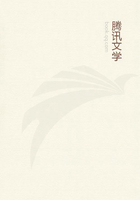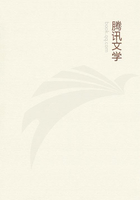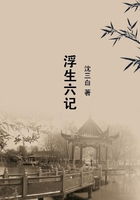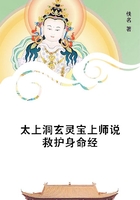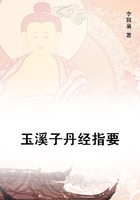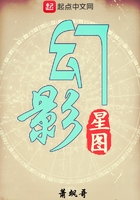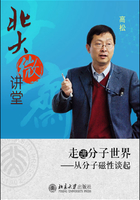Two special condiments enter into the cuisine of this century, and, according to the hand that makes use of them, they furnish all literary dishes with a coarse or delicate seasoning. In an Epicurean society, to which a return to nature and the rights of instinct are preached, voluptuous images and ideas present themselves involuntarily; this is the appetizing, exciting spice-box. Each guest at the table uses or abuses it; many empty its entire contents on their plate. And I do not allude merely to the literature read in secret, to the extraordinary books Madame d'Audlan, governess to the French royal children, peruses, and which stray off into the hands of the daughters of Louis XV,[13] nor to other books, still more extraordinary,[14] in which philosophical arguments appear as an interlude between filth and the illustrations, and which are kept by the ladies of the court on their toilet-tables, under the title of "Heures de Paris." I refer here to the great men, to the masters of the public intellect. With the exception of Buffon, all put pimento into their sauces, that is to say, loose talk or coarseness of expression. We find this even in the" Esprit des Lois;" there is an enormous amount of it, open and covered up, in the "Lettres Persanes."Diderot, in his two great novels, puts it in by handfuls, as if during an orgy. The teeth crunch on it like so many grains of pepper, on every page of Voltaire. We find it, not only piquant, but strong and of burning intensity, in the "Nouvelle Hélo?se," scores of times in "Emile," and, in the "Confessions," from one end to the other. It was the taste of the day. M. de Malesherbes, so upright and so grave, committed "La Pucelle" to memory and recited it. We have from the pen of Saint-Just, the gloomiest of the "Mountain," a poem as lascivious as that of Voltaire, while Madame Roland, the noblest of the Girondins, has left us confessions as venturesome and specific as those of Rousseau[15]. - On the other hand there is a second box, that containing the old Gallic salt, that is to say, humor and raillery. Its mouth is wide open in the hands of a philosophy proclaiming the sovereignty of reason. Whatever is contrary to Reason is to it absurd and therefore open to ridicule. The moment the solemn hereditary mask covering up an abuse is brusquely and adroitly torn aside, we feel a curious spasm, the corners of our mouth stretching apart and our breast heaving violently, as at a kind of sudden relief, an unexpected deliverance, experiencing a sense of our recovered superiority, of our revenge being gratified and of an act of justice having been performed. But it depends on the mode in which the mask is struck off whether the laugh shall be in turn light or loud, suppressed or unbridled, now amiable and cheerful, or now bitter and sardonic. Humor (la plaisanterie) comports with all aspects, from buffoonery to indignation; no literary seasoning affords such a variety, or so many mixtures, nor one that so well enters into combination with that above-mentioned. The two together, from the middle ages down, form the principal ingredients employed by the French cuisine in the composition of its most agreeable dainties, -fables, tales, witticisms, jovial songs and waggeries, the eternal heritage of a good-humored, mocking people, preserved by La Fontaine athwart the pomp and sobriety of the seventeenth century, and, in the eighteenth, reappearing everywhere at the philosophic banquet. Its charm is great to the brilliant company at this table, so amply provided, whose principal occupation is pleasure and amusement. It is all the greater because, on this occasion, the passing disposition is in harmony with hereditary instinct, and because the taste of the epoch is fortified by the national taste. Add to all this the exquisite art of the cooks, their talent in commingling, in apportioning and in concealing the condiments, in varying and arranging the dishes, the certainty of their hand, the finesse of their palate, their experience in processes, in the traditions and practices which, already for a hundred years, form of French prose the most delicate nourishment of the intellect. It is not strange to find them skilled in regulating human speech, in extracting from it its quintessence and in distilling its full delight.
IV. THE MASTERS.
The art and processes of the masters. - Montesquieu. - Voltaire.
- Diderot. - Rousseau. - "The Marriage of Figaro."In this respect four among them are superior, Montesquieu, Voltaire, Diderot and Rousseau. It seems sufficient to mention their names. Modern Europe has no greater writers. And yet their talent must be closely examined to properly comprehend their power.- In tone and style Montesquieu is the first. No writer is more master of himself, more outwardly calm, more sure of his meaning. His voice is never boisterous; he expresses the most powerful thoughts with moderation. There is no gesticulation; exclamations, the abandonment of impulse, all that is irreconcilable with decorum is repugnant to his tact, his reserve, his dignity. He seems to be always addressing a select circle of people with acute minds, and in such a way as to render them at every moment conscious of their acuteness. No flattery could be more delicate; we feel grateful to him for making us satisfied with our intelligence. We must possess some intelligence to be able to read him, for he deliberately curtails developments and omits transitions; we are required to supply these and to comprehend his hidden meanings. He is rigorously systematic but the system is concealed, his concise completed sentences succeeding each other separately, like so many precious coffers or caskets, now simple and plain in aspect, now superbly chased and decorated, but always full.

